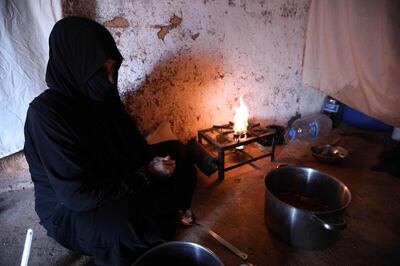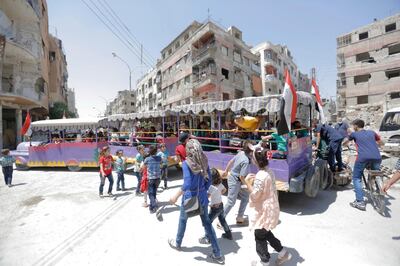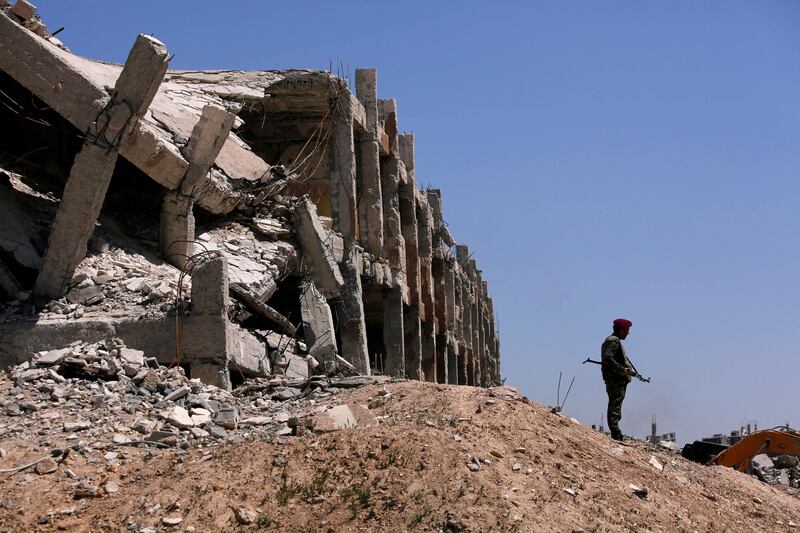The United Nations said on Wednesday that the Syrian government and rebel forces both committed war crimes during the five-year government siege of the eastern Ghouta suburbs of Damascus and the two-month offensive to retake the area from insurgents earlier this year.
In a report released in Geneva, the UN Commission of Inquiry condemned what it called the "longest-running siege in modern history", which affected some 265,000 people.
The government siege ended in April, two months after pro-government forces launched a crushing offensive to capture the area, leaving hundreds dead.
__________
Read more:
[ Syria crisis: Nearly one million people displaced in 2018 ]
[ Assad regime's offensive puts Syria at top of rankings for attacks on health facilities ]
[ Syria's uprising came from its neglected suburbs, now Assad wants to rebuild them ]
__________
The UN commission said that siege as a method of warfare in Syria is "barbaric and medieval". It said civilians in eastern Ghouta experienced immense physical and psychological harm while enduring near-daily bombardment and extreme deprivations – in some cases leading to preventable deaths.

The 23-page report urged all parties to desist from resorting to sieges in the future.
"It is completely abhorrent that besieged civilians were indiscriminately attacked, and systematically denied food and medicine," said commission chair Paulo Pinheiro. "What is clear from the terminal phase of this siege is that no warring party acted to protect the civilian population."
The report said that through the "widespread and systematic" bombardment of the area, and the continued denial of food and medicine, pro-government forces perpetrated a "crime against humanity".

The report also faulted the rebels, saying that between February and April insurgents relentlessly fired mortar rounds into Damascus and nearby areas, killing and maiming hundreds of Syrian civilians.
"Even if pro-government forces are bombing and starving the civilian population of eastern Ghouta into submission, there can be no justification for the indiscriminate shelling of civilian inhabited areas in Damascus," said commissioner Hanny Megally. "Such actions by armed groups and members of terrorist organisations also amount to war crimes."
The report said that by the time eastern Ghouta was fully captured on April 14, some 140,000 people were displaced from their homes, including tens of thousands "unlawfully interned by government forces".
Since retaking eastern Ghouta, government forces have trained their eyes on the south, sending reinforcements before an expected offensive against a rebel-held area close to the Jordan border and the Israeli-occupied Golan Heights.
Opposition activists say some civilians in rebel-held areas are fleeing their villages for fear of the imminent offensive.
Syrian state TV said one person was killed and several others wounded when rebels shelled the village of Jaba in the Quneitra region, on the edge of the Golan Heights.
The Britain-based Syrian Observatory for Human Rights reported shelling on villages in eastern parts of Daraa province, adding that some civilians are fleeing the area.
The United States warned last month it would take "firm and appropriate measures" to protect a ceasefire in southern Syria if government forces move against rebels there. The region has also been a source of regional tensions between Iran and Israel in recent months.





